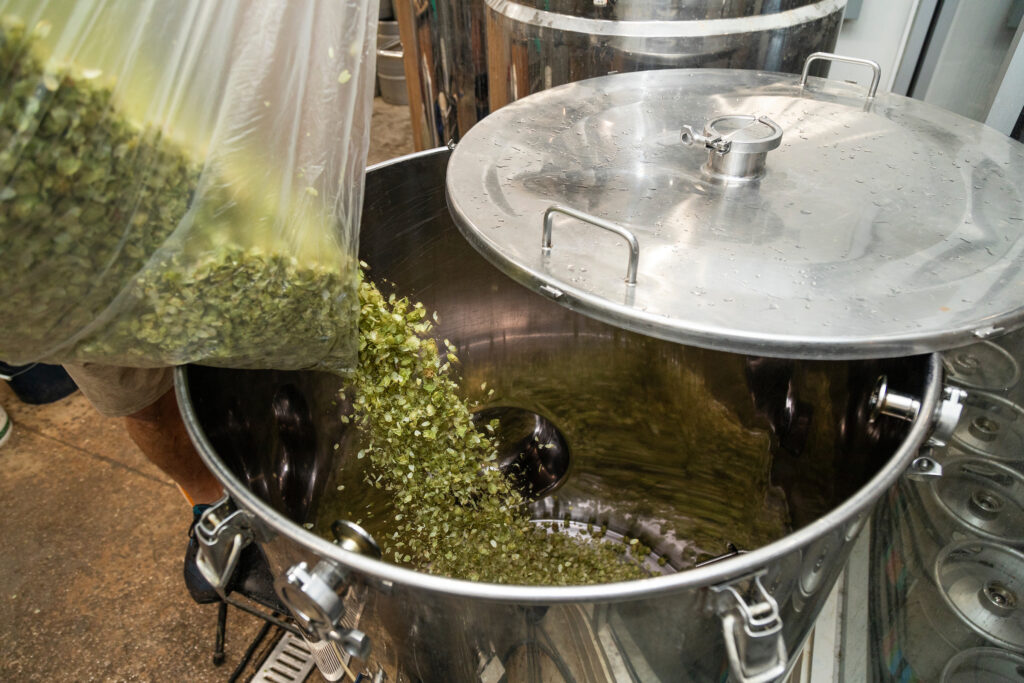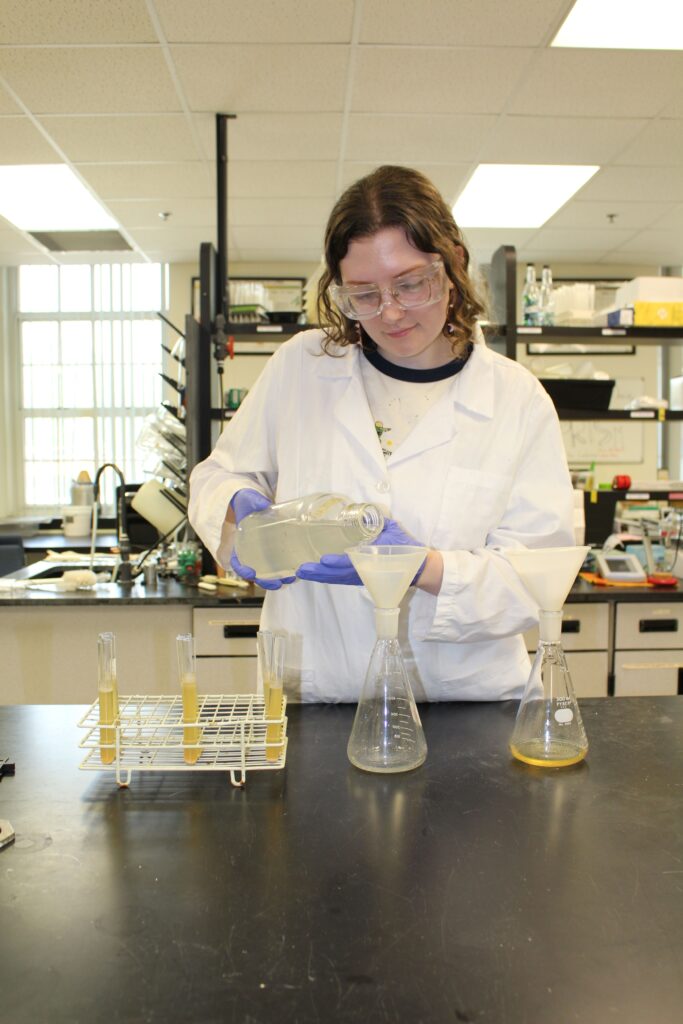By Megan Winslow, UF/IFAS Communications
Beer makers are increasingly embracing sustainability as an essential ingredient for brewing business success, according to a comprehensive new review of the industry’s efforts.
Researchers with the University of Florida Institute of Food and Agricultural Sciences food science and human nutrition department describe the global trend in an article recently published in the Journal of the American Society of Brewing Chemists.

“Sustainability is about using the resources we have today in a way that ensures future generations can enjoy the same opportunities we do,” said article co-author Andrew MacIntosh, an associate professor of food science. “In the brewing industry, we’re discovering some approaches are proving more effective than others, so we created this document as a practical guide for breweries, helping them navigate the available options and learn from what’s worked well.”
The potential impacts of an environmentally conscious beer industry are significant. Globally, 190 billion liters of beer were brewed in 2024, according to industry reports, and research equates each liter to the production of between 0.8 and 1.3 kilograms of carbon dioxide.
Various stages of the beer-making process (refrigeration, manufacturing, waste disposal) are associated with different levels of greenhouse gas generation, according to the article. At 40%, packaging is the most carbon-intensive part of the equation, but it doesn’t have to be. Single-use glass bottles, for example, generate an estimated 0.45 kilograms of carbon dioxide per liter while reusable steel kegs generate an estimated 0.05 kilograms.
Innovative businesses have made strides toward reducing their carbon footprint by seizing opportunities for alternative packaging.
Swamp Head Brewery in Gainesville is among the growing number of businesses that offer reusable growlers and kegs. Saltwater Brewery in Delray Beach pioneered the use of compostable six-pack rings made from the unharvested parts of wheat stalks typically wasted in fields. Hundreds of breweries around the world have since adopted the invention.

Brewery owners are also finding ways to save water. As both a primary beer ingredient and an essential component in nearly every step of the brewing production process, it’s a critical resource. Traditional breweries use an average of 2.3 to 19.6 liters of water for each liter of beer they produce, according to the article.
Advances in artificial intelligence and sensors are facilitating the close monitoring of brewery inputs like water, according to the article. Upslope Brewing Company of Boulder, Colorado, uses flowmeters to track and optimize water usage. Full Sail Brewery of Hood River, Oregon, has a water recovery system and water treatment plant on site. A highly efficient beer mash filter has also helped the company save 1 million gallons of water each year.
Waste disposal is one of the least carbon-intensive stages of the beer-making process, but it’s associated with some of the industry’s most creative sustainability solutions. The article describes how Alaskan Brewing Company of Juneau uses spent grain to fuel boilers, reducing their reliance on fossil fuels by 50%.
Some beer byproducts contain valuable nutrients, and they can be used in dog biscuits, feed for cattle, pigs and fish or as fertilizer. In Gainesville, farmers have partnered with Swamp Head and Cypress & Grove Brewing Co., another local brewery, to repurpose the businesses’ spent grain as supplemental feedstock and fertilizer.
Such partnerships, if widely adopted, could add up to big change: According to the article, spent grain accounts for 85% of total brewing waste, and 36.4 million metric tons of it are generated each year.
While there are myriad ways for brewers to pursue sustainability, not every method makes sense for every business, according to the article. Geographic and policy disparities exist, so opportunities vary. The article suggests brewers seek solutions that fit the “unique needs and quirks” of their operations, and it encourages strategies focused on goals. A table included in the text highlights resources for identifying potential challenges.
“Efforts should go far beyond just counting carbon emissions,” MacIntosh said. “It’s about a holistic approach to how we manage and protect our resources.”
Banner photo: Two glasses of beer (Marisol Amador, UF/IFAS). This piece was originally published at https://blogs.ifas.ufl.edu/news/2025/06/26/brewing-for-the-future-how-sustainability-is-shaping-the-beer-industry/.
Sign up for The Invading Sea newsletter by visiting here. To support The Invading Sea, click here to make a donation. If you are interested in submitting an opinion piece to The Invading Sea, email Editor Nathan Crabbe at nc*****@*au.edu.



